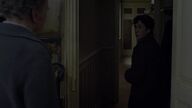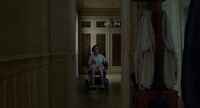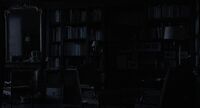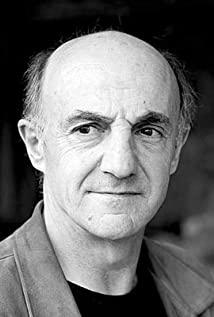The beautiful and peaceful life of a loving couple was interrupted by his wife's sudden stroke and paralysis. The husband was very loving and spent a lot of time taking care of his wife, but in the end he was still overwhelmed and chose to kill his wife. Since ancient times in China, there has been a saying that "there is no filial son in front of the window for a long illness", which also coincides with the moral of the film. Occasionally take care of patients for a period of time, or visit several times between friends and relatives, all I see are kind-hearted care and smiles, but after a long time, caring for patients requires daily mechanized procedures and adapting to the symptoms of patients. There is a huge difference in attitude compared with healthy time, all of which is undoubtedly a great challenge to patience. The husband fired her because of the attitude of the second nanny, but never imagined that he would end up treating his wife in a more extreme way. The director used two hours to convince us that the ending of the film was inevitable. As bystanders, we no longer condemned the husband's killing of his wife, but replaced it with a sense of relief.
What the director wants to express in the film is that the evil that human nature is inherently evil is not evil in a narrow sense, but is the resistance caused by the violent conflict between expectation and reality. The husband wants to take care of and touch the paralyzed wife with his love, but when he finds that the truth is farther and farther from his imagination, the evil in his nature is stimulated to kill his wife. As for the wife, when she was just discharged from the hospital, she couldn't accept the fact that she was half-paralyzed. She was impatient, critical, and passive, which led to the deterioration of her condition, and her various behaviors of not cooperating with her husband could not be caused by evil in human nature. Don't think that evil must be killing and beating and scolding. Sometimes a non-violent and non-cooperative attitude is also a manifestation of evil.
The inherent evil of human nature is also manifested in that people always like the good side of things, whether it is for themselves or others, and when they see things that are not so good or that are contrary to their expectations, they often take negative measures because they cannot accept them. Resist even more extreme approaches. In the past, when medical conditions were backward, human lifespan was generally less than fifty years, and the fire of life would be extinguished once it declined. However, with the development of science, human lifespan is getting longer and longer, and at the same time, the price paid is not only money but also often is self-esteem. Just like the heroine in the film is paralyzed by a stroke, although her life is extended, her life as an ordinary person is gone, and the self-esteem that accompanied her in the past is also gone, resulting in extreme psychological discomfort. In reality, as people do not fully adapt to the rapid development of science psychologically, the imbalance between reality and expectations is increasing day by day, and tragedies similar to those described in the film will be more and more staged.
View more about Amour reviews










